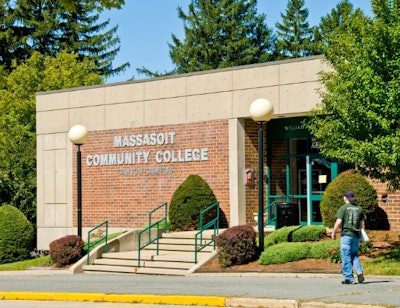
“Everyone should be taking these subject matters,” said Dr. Carine Sauvignon, an executive dean at Massasoit. “It opens up and broadens knowledge and understanding of cultural differences that we experience, especially in higher education.”
Massasoit will begin offering the two-year program this fall – the goal being to enroll at least 15 students – with courses about Black history, literature, music, education, healthcare, and criminal justice. The school is also working out transfer agreements with four-years colleges, such as the University of Massachusetts Boston, Boston University, and HBCUs.
“We've been charged with creating more engaging curriculum,” Sauvignon said. “The hope is that students recognize this program and its worth dealing with social justice issues, learning about Black experience in cultures and civic engagement.”
This development comes at a time of heightened tensions about diversity and African American studies in the nation’s political and cultural spheres, with some politicians – such as those in Florida – actively trying to hinder progress on such topics.
“Massachusetts has a very rich history when it comes to the creation of Black studies,” said Dr. Chad Williams, a historian who teaches history and Afro-American at Brandeis University. “But for this to happen at the community college level is very significant. This is important recognition of their constituency and listening to their needs.”
Community colleges often serve a disproportionate number of Black and brown students and tend to steer them toward more traditional disciplines seen as “more practical” than Black Studies, Williams said.
Brandeis is home to one of this U.S.’s first Black studies departments, created in 1969.
“The creation of Black studies was challenged by people who felt it had no valid intellectual contributions,” Williams said. “Black studies has always been insurgent. It’s always been a challenge to mainstream ways of thinking.”


















